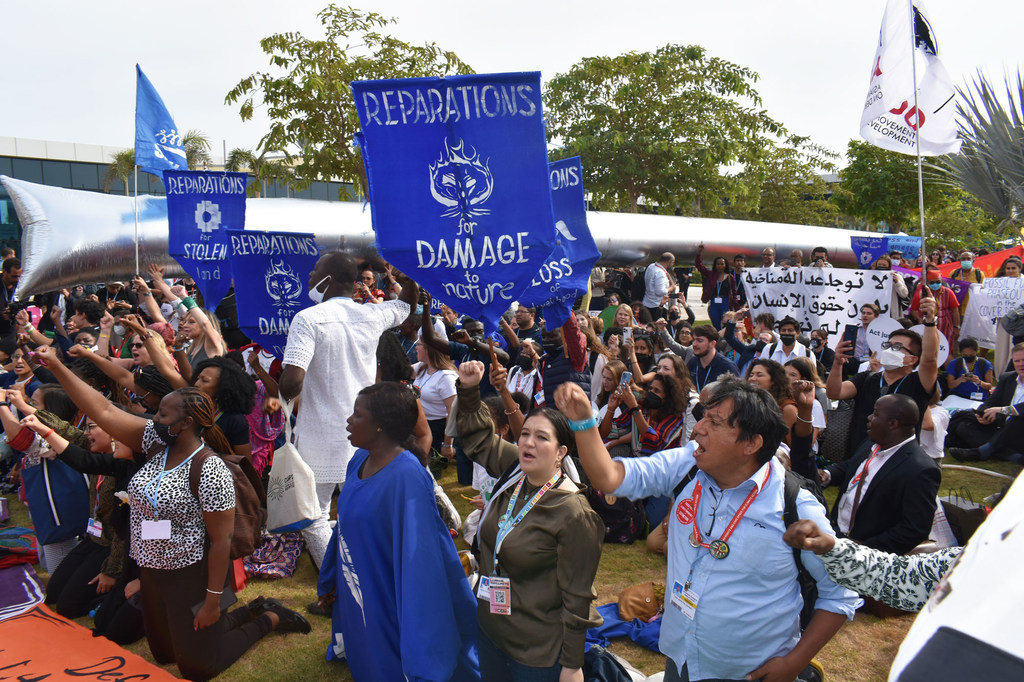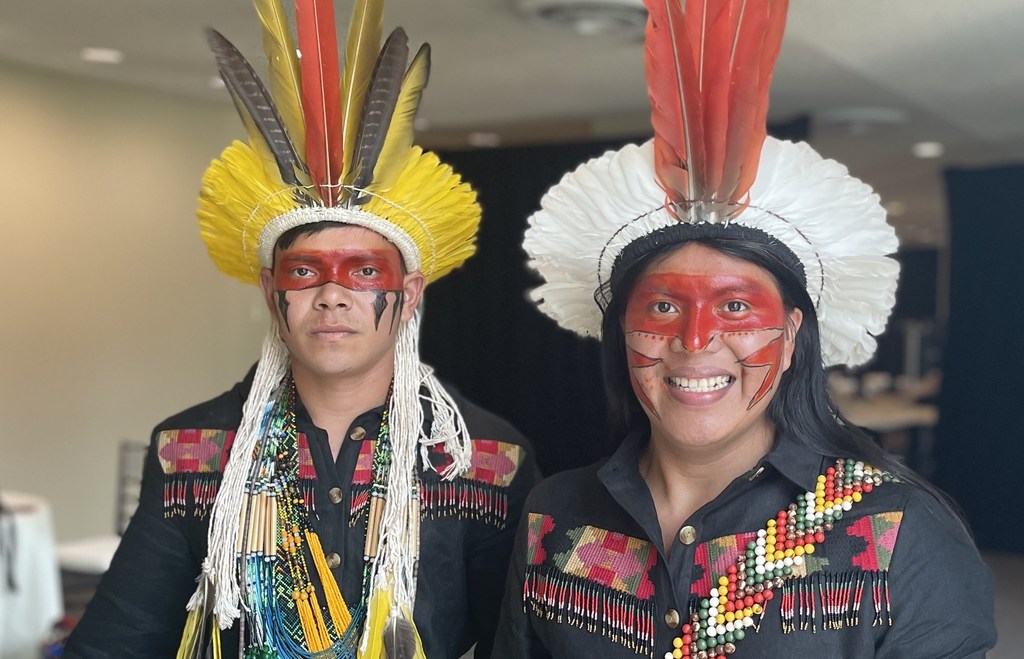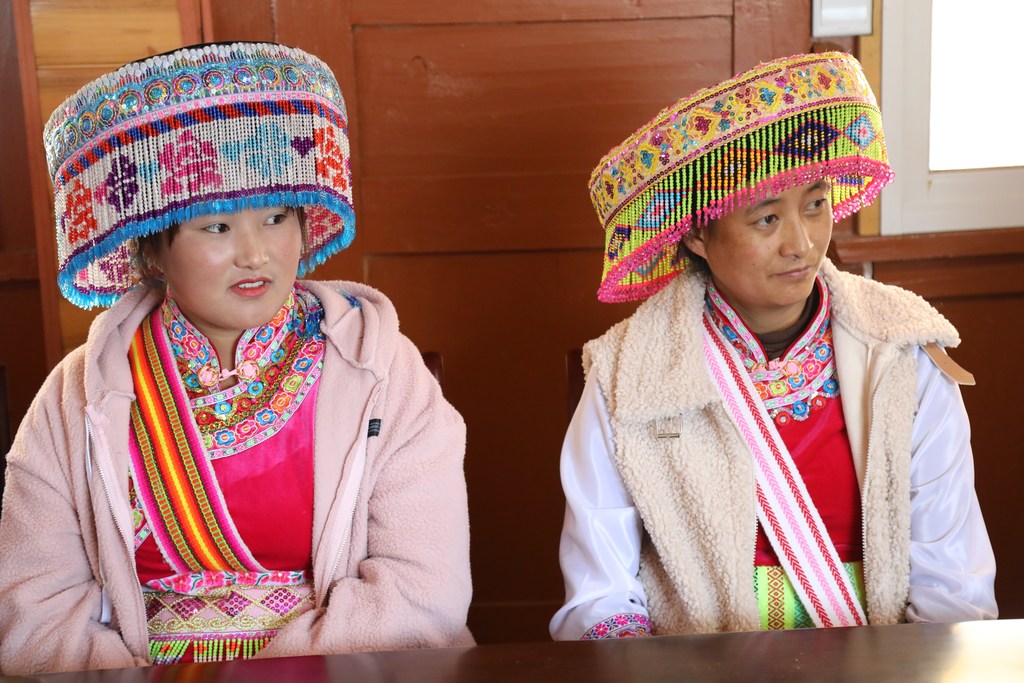11 Dec 2024

Tired Earth
By The Editorial Board

In his address marking the opening of the 2023 session of the UN Permanent Forum on Indigenous Issues (UNPFII) on Monday, UN Secretary-General António Guterres drew attention to the ways that indigenous peoples are denied their human rights, and saluted them for the pioneering role they play in efforts to protect nature and preserve biodiversity.
Indigenous peoples “hold many of the solutions to the climate crisis and are guardians of the world’s biodiversity,” in places as varied as the Amazon, the Sahel, and the Himalayas, said Mr. Guterres.
Exploitation, evictions
The UN chief acknowledged that indigenous peoples struggle to adapt to the climate crisis, and face the exploitation of their resource-rich territories, eviction from their ancestral lands, and physical attacks.
The Secretary-General pointed to the adoption of the Declaration on the Rights of Indigenous Peoples in 2007, which has led to broader participation of Indigenous Peoples in the work of the organization, such as the Convention on Biological Diversity and the UN Framework Convention on Climate Change.
“The United Nations is committed to keep promoting the rights of Indigenous Peoples in policies and programming at all levels and amplifying your voices,” declared the UN chief. “Let us learn from and embrace the experiences of indigenous peoples.”

‘Stop the persecution of rights defenders’
Darío Mejia Montalvo, an indigenous member of the Zenú community in the Colombian Caribbean, and president of the UNPFII, noted the arduous struggle faced by indigenous people.
Debt to rights defenders
“Those who came before us on this path,” he said, in remarks delivered during the opening session, “were able to open up the doors of the United Nations, thanks to their strength.
“I pay tribute to the leaders of indigenous peoples and allies who have lost their lives, defending their peoples and their territories. This Forum belongs to them.”
Mr. Montalvo, describing the Forum as the greatest meeting of cultural and political diversity in the world, said that indigenous peoples are prepared to offer solutions to the climate crisis, and share their experiences.
Indigenous must at the table
“The issues of climate change and biodiversity cannot be resolved without the real and effective participation of indigenous peoples,” he argued, adding that energy transition policies must take indigenous peoples into account from the very beginning.
“Urgent climate action involves stopping the persecution, homicide and criminalization of indigenous brothers and sisters and their actions defending human rights and the rights of nature,” declared Mr. Montalvo.

‘Ancestral knowledge, nurtured over centuries’
The President of the General Assembly, Csaba Kőrösi, declared that the world is still paying the price for taking such a long time to learn from indigenous peoples, about the ways in which the health of the planet and the health of people are intrinsically linked.
Mr. Kőrösi said that the UN needs to understand the factors impacting the health and well-being of indigenous peoples, and address them in a holistic and rights-based manner.
“Your peoples’ ancestral knowledge, nurtured over centuries, has paved the way for the development of many modern medicines,” argued the General Assembly President. “As guardians of 80 per cent of the world’s biodiversity, you hold traditional proficiency in how to adapt, mitigate and reduce climate risks.”
Mr. Kőrösi invited delegates to bolster the international community’s quest for solutions that promote peace, ensure the protection of human rights and foster sustainable development.

Indigenous youth can transform the world: ECOSOC President
Lachezara Stoeva, the President of the UN Economic and Social Council (ECOSOC), noted that the theme for this year’s session – “Indigenous Peoples, human health, planetary and territorial health, and climate change: a rights-based approach” – holds particular relevance for the implementation of the Sustainable Development Goals (SDGs), as it emphasizes the connections between human health and the health of the planet.
“Climate action, and good health and well-being, are two core goals of the 2030 Agenda,” said Ms. Stoeva. “And, as we know, the SDGs are deeply interconnected. A lack of progress on one Goal hinders progress on all the others.”
The ECOSOC President praised the improved collaboration between the Permanent Forum and other ECOSOC subsidiary bodies, such as the UN Forum on Forests and the UN Group of Experts on Geographical Names, and looked forward to the continued participation of Indigenous youth at the Youth Forum, together with the Indigenous Youth caucus, whose voices and proposals, she said, can transform the world into a fairer, greener and more sustainable place.
Source : news.un.org
Comment